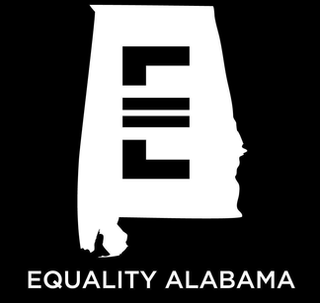
The American Civil Liberties Union (ACLU) is an American nonprofit organization founded in 1920 "to defend and preserve the individual rights and liberties guaranteed to every person in this country by the Constitution and laws of the United States". The ACLU works through litigation and lobbying and has over 1,800,000 members as of July 2018, with an annual budget of over $300 million. Affiliates of the ACLU are active in all 50 states, Washington, D.C., and Puerto Rico. The ACLU provides legal assistance in cases where it considers civil liberties at risk. Legal support from the ACLU can take the form of direct legal representation or preparation of amicus curiae briefs expressing legal arguments when another law firm is already providing representation.
Hate speech is defined by the Cambridge Dictionary as "public speech that expresses hate or encourages violence towards a person or group based on something such as race, religion, sex, or sexual orientation". Hate speech is "usually thought to include communications of animosity or disparagement of an individual or a group on account of a group characteristic such as race, colour, national origin, sex, disability, religion, or sexual orientation". Legal definitions of hate speech vary from country to country.
Civil liberties are guarantees and freedoms that governments commit not to abridge, either by constitution, legislation, or judicial interpretation, without due process. Though the scope of the term differs between countries, civil liberties may include the freedom of conscience, freedom of press, freedom of religion, freedom of expression, freedom of assembly, the right to security and liberty, freedom of speech, the right to privacy, the right to equal treatment under the law and due process, the right to a fair trial, and the right to life. Other civil liberties include the right to own property, the right to defend oneself, and the right to bodily integrity. Within the distinctions between civil liberties and other types of liberty, distinctions exist between positive liberty/positive rights and negative liberty/negative rights.
Reno v. American Civil Liberties Union, 521 U.S. 844 (1997), was a landmark decision of the Supreme Court of the United States, unanimously ruling that anti-indecency provisions of the 1996 Communications Decency Act violated the First Amendment's guarantee of freedom of speech. This was the first major Supreme Court ruling on the regulation of materials distributed via the Internet.

Nadine Strossen is an American civil liberties activist who was president of the American Civil Liberties Union (ACLU) from February 1991 to October 2008. A liberal feminist, she was the first woman to lead the ACLU. A professor at New York Law School, Strossen is a member of the Council on Foreign Relations and other professional organizations.
Same-sex marriage has been legal in Ireland since 16 November 2015. A referendum on 22 May 2015 amended the Constitution of Ireland to provide that marriage is recognised irrespective of the sex of the partners. The measure was signed into law by the President of Ireland, Michael D. Higgins, as the Thirty-fourth Amendment of the Constitution of Ireland on 29 August 2015. The Marriage Act 2015, passed by the Oireachtas on 22 October 2015 and signed into law by the Presidential Commission on 29 October 2015, gave legislative effect to the amendment. Same-sex marriages in the Republic of Ireland began being recognised from 16 November 2015, and the first marriage ceremonies of same-sex couples in Ireland occurred the following day.
The Eighth Amendment of the Constitution Act 1983 was an amendment to the Constitution of Ireland which inserted a subsection recognising the equal right to life of the pregnant woman and the unborn. Abortion had been subject to criminal penalty in Ireland since at least 1861; the amendment ensured that legislation or judicial interpretation would be restricted to allowing abortion in circumstances where the life of a pregnant woman was at risk. It was approved by referendum on 7 September 1983 and signed into law on 7 October 1983. In 2018, it was repealed by referendum.
The Fifteenth Amendment of the Constitution Act 1995 is an amendment of the Constitution of Ireland which removed the constitutional prohibition on divorce, and allowed for the dissolution of a marriage provided specified conditions were satisfied. It was approved by referendum on 24 November 1995 and signed into law on 17 June 1996.

Attitudes in Ireland towards lesbian, gay, bisexual, and transgender (LGBT) people are among the most liberal in the world. Ireland is notable for its transformation from a country holding overwhelmingly conservative attitudes toward LGBT issues, in part due to the opposition by the Roman Catholic Church, to one holding overwhelmingly liberal views in the space of a generation. In May 2015, Ireland became the first country to legalise same-sex marriage on a national level by popular vote. The New York Times declared that the result put Ireland at the "vanguard of social change". Since July 2015, transgender people in Ireland can self-declare their gender for the purpose of updating passports, driving licences, obtaining new birth certificates, and getting married. Both male and female same-sex sexual activity have been legal in the state since 1993. Government recognition of LGBT rights in Ireland has expanded greatly over the past two decades. Homosexuality was decriminalised in 1993, and most forms of discrimination based on sexual orientation are now outlawed. Ireland also forbids incitement to hatred based on sexual orientation.
Section 13 of the Canadian Human Rights Act was a provision of the Canadian Human Rights Act dealing with hate messages. The provision prohibited online communications which were "likely to expose a person or persons to hatred or contempt" on the basis of a prohibited ground of discrimination. Complaints under this section were brought to the Canadian Human Rights Commission and if the Commission found sufficient evidence, the case would be heard by the Canadian Human Rights Tribunal. The provision was used successfully in several cases against white supremacists, anti-Semitic, and neo-Nazi groups. However, it was repealed by the Parliament of Canada in June 2014, following a Canada-wide campaign when a group of young Muslim law students, for the first time in Canada, used the human rights system to challenge alleged Islamophobia by right-wing columnists, including Ezra Levant and Mark Steyn. The Ontario Court of Appeal would describe the campaign in libel proceedings against Ezra Levant in relation to events that took place from 2007 in Awan v. Levant.
Two constitutional referendums were held simultaneously in Ireland on 27 October 2011, each on a proposed amendment of the Constitution of Ireland. The proposed amendments are on judicial salaries pay cuts, and to provide additional powers to Oireachtas committees.
The Thirtieth Amendment of the Constitution Bill 2011 was a proposed amendment to the Constitution of Ireland to provide for the Houses of the Oireachtas to conduct full inquiries. The bill was passed by both houses of the Oireachtas, but rejected at a referendum held on 27 October 2011.

Equality Alabama (EA) is a statewide non-profit civil rights organization that advocates for the rights of LGBTQ people in Alabama.

Freedom for the Thought That We Hate: A Biography of the First Amendment is a 2007 non-fiction book by journalist Anthony Lewis about freedom of speech, freedom of the press, freedom of thought, and the First Amendment to the United States Constitution. The book starts by quoting the First Amendment, which prohibits the U.S. Congress from creating legislation which limits free speech or freedom of the press. Lewis traces the evolution of civil liberties in the U.S. through key historical events. He provides an overview of important free speech case law, including U.S. Supreme Court opinions in Schenck v. United States (1919), Whitney v. California (1927), United States v. Schwimmer (1929), New York Times Co. v. Sullivan (1964), and New York Times Co. v. United States (1971).

The Thirty-fourth Amendment of the Constitution Act 2015 amended the Constitution of Ireland to permit marriage to be contracted by two persons without distinction as to their sex. Prior to the enactment, the Constitution was assumed to contain an implicit prohibition on same-sex marriage in the Republic of Ireland. It was approved at a referendum on 22 May 2015 by 62% of voters on a turnout of 61%. This was the first time that a state legalised same-sex marriage through a popular vote. Two legal challenges regarding the conduct of the referendum were dismissed on 30 July by the Court of Appeal, and the bill was signed into law by the President of Ireland on 29 August. An amendment to the Marriage Act 2015 provided for marriages permitted by the new constitutional status. The act came into force on 16 November 2015; the first same-sex marriage ceremony was held on 17 November 2015.
Mellet v Ireland is a finding from the United Nations Human Rights Committee in 2016 that the Republic of Ireland's abortion laws violated human rights and the International Covenant on Civil and Political Rights by banning abortion in cases of fatal foetal abnormality and by forcing her to travel to the United Kingdom for an abortion.

The Thirty-seventh Amendment of the Constitution is an amendment to the constitution of Ireland which removed the constitution's requirement to criminalise "publication or utterance of blasphemous matter". The amendment was effected by an act of the Oireachtas — the Thirty-seventh Amendment of the Constitution Act 2018, which was introduced in Dáil Éireann, passed by the Dáil and Seanad, approved by the people in a referendum, before it was signed into law by the president.
Secularism in the Republic of Ireland has been described as a "Quiet Revolution", comparable to the Quiet Revolution in Quebec. It is an unofficial term that encompasses a number of significant social and political movements related to secularism and secularization, which have occurred within the last thirty years, and involved no violence or force. It has been described as a period where "the people led, and the politicians followed". Since the passing of a 1972 amendment with overwhelming public support, Ireland has had a secular constitution, although a high degree of religious influence over laws, education, and state business still persisted in the decades which followed, diminishing only in more recent times. In an assessment of the Irish state's overall secularity, Humanists International gave Ireland a mixed score, finding "systematic discrimination" against non-religious people in government, education, and society.
The Thirty-eighth Amendment of the Constitution of Ireland is an amendment to the Constitution of Ireland which altered the provisions regulating divorce. It removed the constitutional requirement for a defined period of separation before a Court may grant a dissolution of marriage, and eased restrictions on the recognition of foreign divorces. The amendment was effected by an act of the Oireachtas, the Thirty-eighth Amendment of the Constitution Act 2019.
Hate speech is public speech that expresses hate or encourages violence towards a person or group based on something such as race, religion, sex, or sexual orientation. Hate speech is "usually thought to include communications of animosity or disparagement of an individual or a group on account of a group characteristic such as race, colour, national origin, sex, disability, religion, or sexual orientation".







